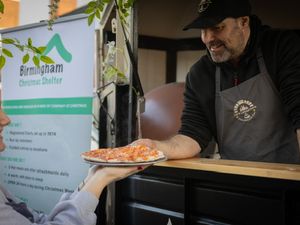Survey reveals Brits are spending almost 2k a year on takeaways
In our fast-paced lives, convenience often drives our spending—whether it's an Uber after a night out or a Sunday takeaway. While these small purchases may seem insignificant, they can add up more than we realise. But how much are these purchases costing over time?
To uncover the truth, Aqua conducted a survey of 2,017 Brits to identify the top convenience expenses, determine their total cost, and gauge how many people are truly aware of the money they’re sacrificing for convenience.
The Most Expensive Convenience Costs for Brits
Brits were also asked how they’re cutting costs, with the most popular methods being meal prepping, shopping in person, using loyalty schemes, and carrying a reusable water bottle to avoid frequent purchases.
Food & Drink: 56% are cutting back on takeaways, 49% on buying lunch out, and 40% on grocery deliveries. Women are more likely than men to cut back in these areas — 51% vs. 41% for takeaways, and 52% vs. 41% on takeaway coffees.
Online Shopping: 59% are ordering online less often, choosing to shop in-store to save.
Transport & Services: 38% are using taxis or Ubers less, while 29% are reducing spending on professional services. Men are slightly more likely than women to switch to public transport (30% vs. 25%) or walk and cycle (32% vs. 25%)
Sharvan Selvam, Commercial Director at Aqua, shares insights into convenience costs: "When the cost of small, everyday conveniences are combined, they can really add up over time. With nearly 60% of Brits actively trying to cut back on online shopping and takeaway dinners, it’s clear that people are becoming more conscious of these 'convenience costs.'
“To save money, try making a few simple changes.
First, remove your saved credit card info from online stores to make it harder to impulse buy online. For things like entertainment or shopping, make sure to set yourself a monthly budget and decide which items fit into this.
Before buying anything you don’t really need, give yourself 24 hours to think about it to make sure it’s really something that you need or want.
Set automatic payments for your regular bills but pay for subscriptions manually so you can check if you still use them.
Finally, use a budgeting app to track recurring charges and spot any hidden fees, so you can cancel things you’re not using. These small changes can help you cut back on unnecessary spending.”




